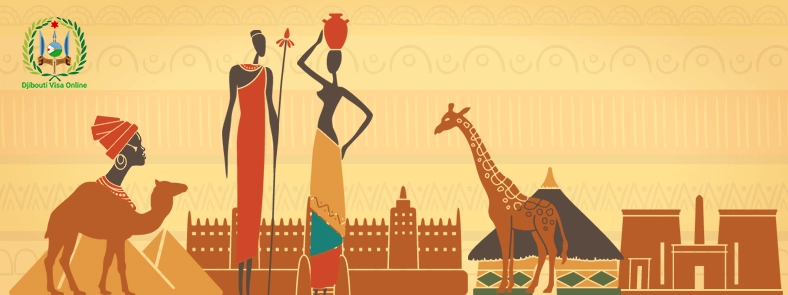Top Cities to Visit in Djibouti in 2026: Explore the Hidden Gems of East Africa
By Priyanshu Raghav | 27-Oct-2025 | (0) (0)

Introduction to Djibouti’s Tourism Charm
Nestled at the crossroads of the Red Sea and the Gulf of Aden, Djibouti is a small yet fascinating East African nation that has emerged as one of Africa’s most captivating travel destinations. From its otherworldly salt lakes to its pristine beaches and unique blend of African, Arab, and French cultures, Djibouti offers travelers an unforgettable experience.
As tourism continues to grow in 2026, visitors from around the world are discovering the beauty of this desert paradise. Whether you’re a nature enthusiast, history buff, or beach lover, there’s something for everyone in Djibouti.
Why Visit Djibouti in 2026
Djibouti’s strategic location and cultural richness make it a top destination for adventure seekers and those looking for peaceful retreats. The government’s recent investments in infrastructure, hotels, and digital visa systems have made travel more accessible than ever.
Some of the highlights of visiting Djibouti include:
-
Visiting Lake Assal, one of the saltiest bodies of water on Earth.
-
Exploring ancient port towns like Tadjoura.
-
Experiencing African and French culinary fusion in Djibouti City.
-
Diving or snorkeling near Khor Ambado Beach.
-
Trekking through the Arta Mountains for breathtaking views.
Djibouti City – The Heartbeat of the Nation
The capital, Djibouti City, is a vibrant coastal hub that perfectly blends modern development with historical charm. As the country’s economic and cultural center, it’s often the starting point for most visitors.
Top Attractions in Djibouti City
-
Doral & Khor Ambado Beaches: Located just 15 km from the city, these beaches are perfect for water sports, diving, and sunset views. The surrounding black lava cliffs add a dramatic touch to the landscape.
-
Central Market: A lively market offering spices, textiles, and local crafts where you can experience everyday life in Djibouti.
-
European Quarter: A remnant of French colonial architecture, this district reflects Djibouti’s rich colonial heritage.
-
Port of Djibouti: One of the busiest shipping hubs in Africa, offering scenic views and bustling maritime activity.
Tadjoura – The White City of Djibouti
One of the oldest towns in the country, Tadjoura is often called “La Ville Blanche” or “The White City” due to its whitewashed buildings that shimmer under the sun.
This coastal city once served as a key trading port between Ethiopia and Djibouti. Today, it attracts travelers looking to experience traditional Djiboutian culture and serene coastal beauty.
Lake Assal – Africa’s Lowest Point
Located near Tadjoura, Lake Assal sits 155 meters below sea level, making it the lowest point in Africa. The lake’s high salt content gives the water a surreal turquoise color, often compared to the Dead Sea. It’s also one of the largest salt reserves in the world and a UNESCO World Heritage candidate.
Visitors should avoid swimming here due to the extreme salinity, but the breathtaking landscape is a photographer’s dream.
Dikhil – The Gateway to Western Djibouti
Located about 120 kilometers from Djibouti City, Dikhil is a small town surrounded by arid plains and volcanic formations. It serves as a trade link between Djibouti and Ethiopia. Despite its modest size, Dikhil offers an authentic glimpse into rural Djibouti.
Palm Gardens and Local Culture
Known for its lush palm gardens, Dikhil stands out as a green oasis amid the desert. The mild climate makes it ideal for agriculture, and the local markets offer fresh produce and traditional food. Visitors can also witness the daily movement of Ethiopian traders and nomads.
Arta – The Mountain Town of Tranquility
Set in the Arta Mountains, this scenic town is just 40 kilometers west of the capital. Arta is known for its mild climate and peaceful atmosphere, making it a popular weekend getaway for locals and expats.
Lake Ghoubet – Djibouti’s Volcanic Wonder
A short drive from Arta lies Lake Ghoubet, a deep volcanic lake connected to the Gulf of Tadjoura. Surrounded by rugged terrain, it’s one of Djibouti’s most photographed natural wonders. The lake is often visited by divers hoping to spot whale sharks between November and February.
How to Apply for a Djibouti Visa
Getting a Djibouti Visa is now a simple and quick online process. Follow these steps to apply conveniently from anywhere in the world:
-
Visit the official Djibouti Visa application page on our website.
-
Select your visa type (Tourist, Business, or Transit).
-
Fill in your details — including travel dates, passport information, and purpose of visit.
-
Upload the required documents such as a passport scan, photo, and return flight ticket.
-
Pay the visa fee online using secure payment methods.
-
Receive your eVisa via email, typically within 3–5 business days.
Once approved, print your eVisa and present it upon arrival in Djibouti.
Why Choose Our Professional Visa Service
Applying through our trusted platform ensures:
-
Fast processing and easy document uploads.
-
24/7 customer support for all your visa-related queries.
-
Real-time application tracking for peace of mind.
-
Guaranteed confidentiality and data protection.
Avoid delays and confusion by applying for your Djibouti Visa through our professional service — the safest and most reliable way to start your journey.
Conclusion
Djibouti offers travelers a perfect blend of adventure, culture, and natural beauty. From the bustling streets of Djibouti City to the tranquil shores of Lake Assal and the peaceful heights of Arta, every corner tells a story.
Start planning your trip today and apply for your Djibouti Visa with us to make your 2026 journey smooth and memorable.
WRITE YOUR COMMENT
Your email address will not be published. Required fields are marked *